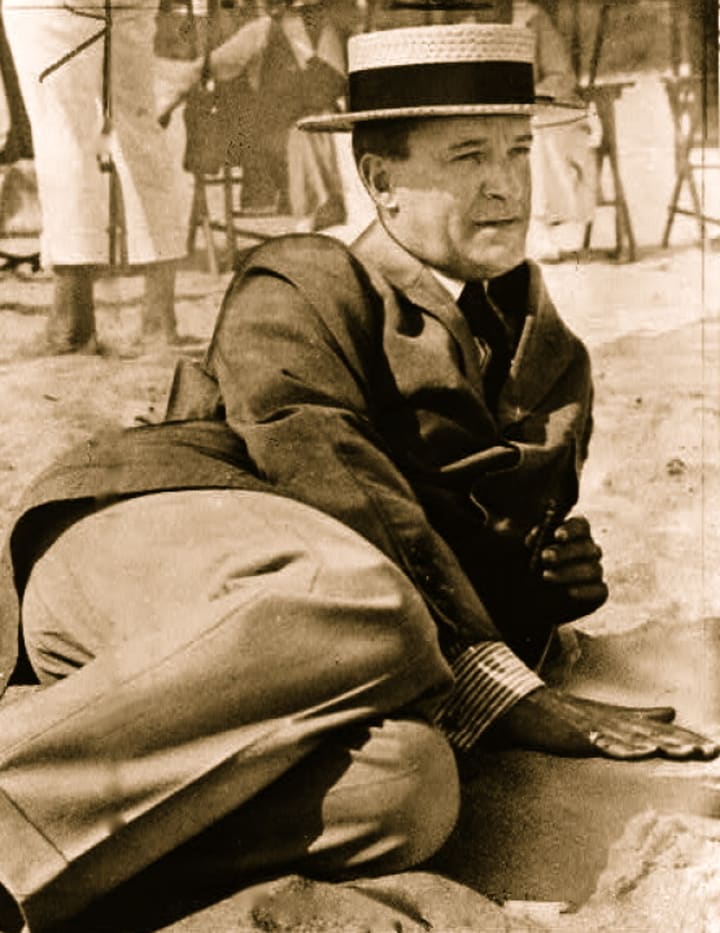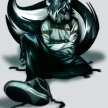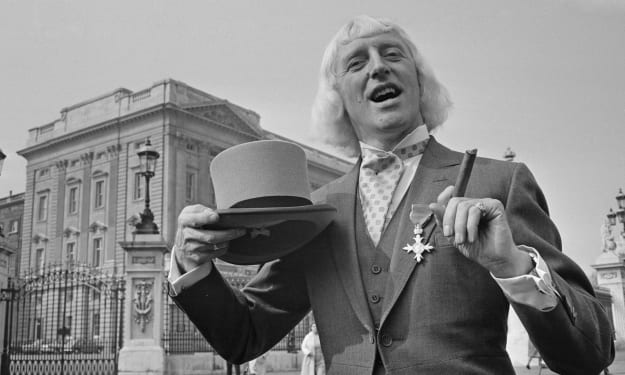The Impossible Murder of Joseph Bowne Elwell
Much like the classic mystery novel trope, he was killed in a room that was locked from the inside. So how did Joseph Bowne Elwell's death happen?
If you're an avid watcher of The X-Files, Sherlock, or CSI, you have most likely seen the "Locked Room Mystery" trope come into play. It's a common plot scenario where a murder victim is found dead inside a locked room, no visible weapon, and no way for a criminal to escape.
The Locked Room Mystery trope is by no means new; there have been examples of this fictional plot device spanning back to Biblical eras. Even major mystery writers like Sir Arthur Conan Doyle have used it as a plot device. It was popular then, stays popular now, and will remain popular in the future.
The reason why just about every mystery writer has used it is the seemingly impossible appearance of the mystery. How can a person get out of a room if the door is locked? Where did the weapon go? Who did it?
Believe it or not, the Locked Room Mystery trope was one that almost faded into obscurity about a century ago. However, one real-life murder case brought back interest in the trope and gave new life to it in a way no one could have ever seen coming.
The case in question was the murder of Joseph Bowne Elwell. His death remains one of the most baffling crime cases in modern history and still is considered to be a cold case almost a century after the discovery of his body.
It was the mystery that remained the strangest event to happen in 1920—and it's one that will make you wonder what happened.
Who was Joseph Bowne Elwell?

In the microcosm that was 1910s New York City, very few people embodied the American dream like Joseph "Joe" Bowne Elwell. Though he started off as a lower-middle class salesman, Elwell's natural charm had managed to get him into a young men's club as a bridge player.
Within a matter of years, his natural knack for the game and endearing persona got him into higher social circles. He became known as a regular winner in money clubs throughout the area—and quickly became exposed to some of the most powerful people in America.
After meeting socialite Helen Derby, he was able to marry into a high society that included names like the Roosevelts as in-laws. Using her social ties, Derby helped Elwell become a famous writer and tutor, all the while keeping his fame as a world-class bridge player.
It didn't take too long for J.B. Elwell to be known as the Bridge King of Manhattan. His other favorite card game, whist, gave him another local moniker: The Wizard of Whist.
Overall, life was sweet for ol' Joe. Or, was it?
A Man of Scandal
J.B. Elwell, as he was known prior to his death, was the type of man who was considered to be a scandal-bearer in the 1910s and 1920s. It was his vices that made him hated, and notorious.
Gambling alone would be enough to make serious enemies, even today. After all, owing money to the wrong people can easily get you hurt or even killed. This was as true now as it was back then.
However, there was one thing Elwell liked even more than gambling: women. His exploits became the talk of New York City, primarily because he would often have flings with married women and much younger girls. Even today, this would make him a pretty hated figure in society.
But, this wasn't modern day. It was the 1910s, when society really had a serious issue with women having sex. This meant that J.B. Elwell was a man who had a lot of spurned mistresses, angry husbands, and enraged fathers who wanted him to go down in flames.
It was easy to see how Elwell got so many women into his arms. He was known for his pearly white smile, his thick head of hair, and for being able to make women swoon with his "larger than life" personality.
Rumor had it that Elwell's wife was also well-aware of his philandering, and that it seriously tore her up inside. Eventually, the two separated—and Elwell's womanizing kicked up a notch.
A Murder As Sudden As Can Be
With most murder mysteries, there are signs that something is not well with the victim. Many victims have serious altercations with people, bitter feuds, or even claim to have been warned about their behavior from intimidating people.
Though Joe was known for making enemies due to his philandering and gambling-prone ways, there were no serious indicators that anyone would actually take action against him.
But, it was clear that at least one person had not forgiven him for his transgressions. Then, on June 11, 1920, Elwell was discovered by his housekeeper, dead with a gunshot to the head.
Being the partying playboy he was, J.B. Elmwell decided to seize the hot summer night and have some fun. So, he went off to the Ritz Carlton Hotel to dine with the newly-divorced Viola Kraus, his latest paramour.
Shortly after they dined and drank to their hearts' content, they went to see the Midnight Frolic Show. Nothing out of the ordinary seemed to take place during their time out and about.
By 2:30 AM, he had gotten back home via taxi. He then took a short nap, and made a couple of short phone calls—the last of which occurred at 6:09 AM. At 7:09, the famous bridge player was seen picking up the newspaper from his doorstep.
"Who is that man?"
Marie Larsen, Elwell's Swedish housekeeper, was in for the shock of her life when she set about cleaning everything. She unlocked the front door, walked in, and set about cleaning. But, something wasn't quite right.
The first strange thing that she noticed was that the door to the living room was locked from the inside. Even so, she shrugged and unlocked the door.
Then, she saw her employer sitting in a chair. She greeted him, as always, knowing that he was a friendly and jovial man. He didn't respond. Worried, she walked over to him and then gasped.
In his chair was a balding man, old, toothless, and feeble-looking, dying of a gunshot wound to the head. In his lap was the newspaper, neatly folded beneath his hands. She didn't recognize the stranger in the chair; he looked nothing like the dashing Elwell she knew.
On further inspection, Marie realized that the man in the chair was none other than Joseph Bowne Elwell—minus the wigs and dentures he wore. She immediately ran to the police and told them about the grisly discovery.
But Wait, It Gets Stranger
Defying all odds, Elwell wasn't dead by the time that the police had arrived at his house. They transported him to the nearest hospital, where he died, unable to say a single word about who did this to him.
Joseph Bowne Elwell's murder was unlike anything that NYPD had ever seen in real life. His body was found in a room that was locked from the inside, with no reports of anyone going in or out of the room.
More alarmingly, he was shot at point blank range, with a .45 caliber gun. Despite the close range and the fact that he'd obviously be aware of the fact that he was going to be shot, there was no sign of struggle in the room.
A single bullet was placed on the table in front of him, and the cartridge that held the bullet was later found on the floor. Though the bullet and cartridge were found, there was no sign of the gun anywhere.
From what police could deduce from the blood splatters, the assailant had to be crouched in front of Elwell when the gun was fired. So, it's clear that Elwell likely had seen the gun before he died.
It became clear that J.B. Elwell probably knew his killer. Even so, things just didn't make sense. Who would he invite in at such an early hour? Why would this man ignore someone pointing a gun at him while he's opening mail?
NYPD quickly set upon the case, but soon found that things were increasingly confusing. They also realized that his reputation for womanizing was very well-earned, and that he had far more enemies than people initially believed.
They found a massive collection of lingerie in his bedroom—all of which belonged to the women he bedded. Along with it was a “Love List” of 50 different women, complete with their names, numbers, and notes about them.
Police also were stunned to see the amount of wealth that Elwell had in his home. Inside, cops found large piles of cash, jewelry, as well as a Rembrandt. None of the pricey items in his home were touched, suggesting that his murder was the act of a personal vendetta.
Assuming that his murder may have been the work of an unhinged lover, the police interviewed every woman on that list. At one point, his ex-wife Helen became a prime suspect in the case. Within a short period of time, it became clear that Helen Derby and every other woman police questioned was deemed innocent.
A Fingerprint-Free Household?
To try to get to the bottom of the locked room mystery, NYPD made an attempt to dust for fingerprints. The only fingerprints that were found around the house were those of Joseph Bowne Elwell and Marie Larsen. The case remained cold as ever.
In terms of suspects, the police were totally flooded. It could have literally been anyone in the Big Apple! Between the jilted lovers, sore bridge losers, angry fathers, and pissed off husbands alone, police were able to find around 1,000 different potential suspects.
Between his scandalous dealings, his notoriety as the Bridge King of Manhattan, and the fact that he had so many enemies in high places, it's easy to see why the murder of Joseph Bowne Elwell captivated the media.
Newspapers around the country swarmed on his brownstone house and begged NYPD for details. Unfortunately, all the digging appeared for naught. No additional clues ever came forth as to who may have been his murderer.
A couple of years later, one man came forth claiming that he was the one who shot Joe Elwell. However, upon further questioning, it became clear that he was unhinged and never actually met the man. After the confession, the case remained cold.
Joseph Bowne Elwell may have been slightly famous before he died, but after his murder, he became immortalized as a literary character and also helped revive the Locked Room Mystery trope.
It's common knowledge that his murder was the inspiration for the mystery novel, The Benson Murder Case. But, that's not the only way that Elwell's death reignited the writing wold.
Rumor has it that F. Scott Fitzgerald became fascinated by Joe's life, personality, and murder, modeled Jay Gatsby from The Great Gatsby after him. Considering his lower class upbringing, his party-hardy personality, and his womanizing, it's easy to see the similarities.
So, while he may not have been a model man, he was a model murder victim nonetheless.
About the Creator
Skunk Uzeki
Skunk Uzeki is an androgynous pothead and a hard partier. When they aren't drinking and causing trouble, they're writing articles about the fun times they have.






Comments
There are no comments for this story
Be the first to respond and start the conversation.